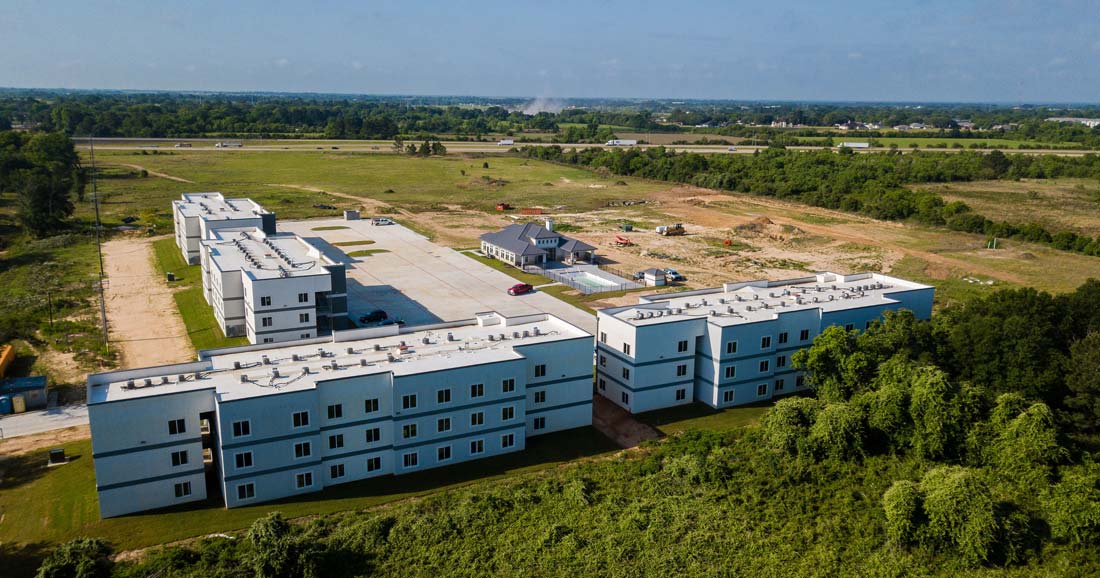Investors expected 2021 to be an interesting year. COVID-19, after all, is sure to continue to move real estate in many directions in the second half. However, strong consumer spending and e-commerce in 2020, as well as growing interest in AI and cybersecurity made the first two quarters seem set for success.
Then the Delta Variant outbreak happened.
If there’s one thing that’s certain, it’s that nothing is certain. With that in mind, let’s explore sound investment strategies for 2022.
Considerations for 2022
On the morning of March 3rd 2020, the Federal Reserve cut interest rates by half a percentage in an emergency rate cut. This was a direct response to the market drop caused by concerns about the coronavirus crisis’ economic impact. This rate has remained at this level until recently when the Fed started raising it.
The lower interest rate affects consumer interest rates such as those on credit cards, bank loans, mortgages, and more. Even before the Fed lowered this rate, however, mortgage rates had already neared all-time lows due to coronavirus worries.
The coronavirus crisis continues to rear its head, and we just don’t know when it will end or whether we will gain crowd immunity anytime soon, but markets are still holding up. Even though the ups and downs, 2021 turned out to be a pretty good year for most multifamily, industrial, and other real estate property investors.
What does all this mean for investors? It means careful consideration of investment strategies for the year ahead. While short-term goals may be drastically affected (i.e., Apple’s supply chains and Disney’s amusement parks are already suffering, causing shareholder concern), investors with long-term goals may need to just take a deep, thoughtful breath. Investing in remote meeting software Zoom may only go well for as long as the coronavirus crisis keeps workers out of offices, for example.

Personal Considerations
As with any year, the most important considerations are each investor’s personal goals and risk tolerance.
For investors looking to start or bolster retirement savings and who have decades of time on their side, one volatile year is just a bump in the road. For those with more immediate financial outcomes in their sights, this year could be make-or-break.
These factors play into another consideration: risk tolerance. While some investors are naturally skittish and others are more relaxed, timelines can put pressure on anyone’s portfolio outlook.
So, consider your goals, risk tolerance, and current portfolio before diving into the strategies below. Investing only for 2020 as we enter the end of the first quarter is likely short-sighted for many. Consider where you want to be financially at the end of 2020, but also afterwards, and think about how much time you have to get there. Then, take a look at these options:
- CDs and Money Market or High Yield Savings Accounts
- The Stock Market
- Real Estate
PRC Investor Network will further discuss each of these investment strategies below.

CDs and Money Market or High Yield Savings Accounts
For investors with low risk tolerance, and/or who are simply looking to maintain their money and protect it from inflation, CDs are one way to go in 2022. CDs with APYs of up to 2.20% are available as of March 2021, higher than Bankrate’s January prediction that they’d raise to 1.9% by the end of the year.
Craving more liquidity? Money market accounts may be the answer. Many money market accounts no longer offer competitive interest rates to regular savings accounts. However, if your bank does and you’re looking to play it safe with your money in 2022, they’re worth considering. Beware: these accounts generally require a high minimum balance.
If you don’t need the checking capabilities of a money market account, and if the interest rates are competitive, there’s nothing wrong with securing funds in a high-yield savings account. As of March 2022, some banks offer accounts with APYs of 1.85%.

The Stock Market
Stocks, exchange-traded funds, bonds, mutual funds, index funds, and options: however you invest in the stock market, there is always more risk involved than with CDs and the accounts described above. Of course, there’s also typically more reward.
More volatility isn’t a deterrent for more risk-tolerant investors. While the market goes up and down in the short-term, it trends upwards long-term. For those with financial goals further down the road, the stock market makes perfect sense for investing.
The standard recommendation when it comes to investing in the market is to have a portfolio that is 60% stocks and 40% bonds. Because 2019 was such a strong year for stocks, it wouldn’t be surprising if some investors found this proportion suddenly out of balance. Their stocks may make up 70% of their portfolio now, for example, with only 30% committed to bonds.
For people in this situation, early 2021 was a good time to rebalance a portfolio. Whether rebalancing or just dipping your toe in, take a look at diversifying as well. Healthcare, especially biotech, is seeing promising growth. The same goes for energy, especially in regards to sustainability. Many investors also look for companies that consistently pay good dividends, to offer some comfort in the volatile times that are likely ahead.

Real Estate
While real estate investment is typically more of a commitment than the market, the payoff is often more predictable. For example, demand for housing in big markets will keep rent high this year as the growing IT and healthcare industries continue to concentrate their presence where the most talent is found. Multifamily investing through crowdfunding platforms such as The PRC Investor Network, is one of the most sound investment strategies we can offer for accredited investors. The PRC Investor Network allows users to invest in funds backed by commercial real estate, and the PRC team thoroughly underwrites each offer with the investor in mind.
In other, slightly smaller markets, however, house prices have already peaked. For investors already in those markets, it’s time to strategize. More US cities in 2022 are also seeing more people able to pay high rents. This makes apartment buildings, or converting single-family homes into rental units, an attractive option.
Does converting and managing a rental property sound like too much work? REITs and other commercial real estate investment options allow you to reap the rewards of real estate investment without the work. If this sounds right for you, consider becoming a part of PRC’s Investor Network to make it happen. Pioneer Realty Capital can also make sure you make the most of commercial real estate tax benefits.

The Most Important Investment
These are just a few broad investment strategies for 2022, but they serve as an introduction to the road ahead. Ultimately, the most important investment someone can make is in themselves: consider goals, financial and otherwise, and take the steps necessary to get there. If commercial real estate investment is a step for you, reach out to Pioneer Realty Capital’s investor relations manager today. Call 682-518-9416.




CONNECT